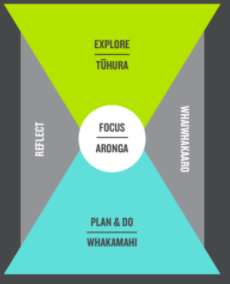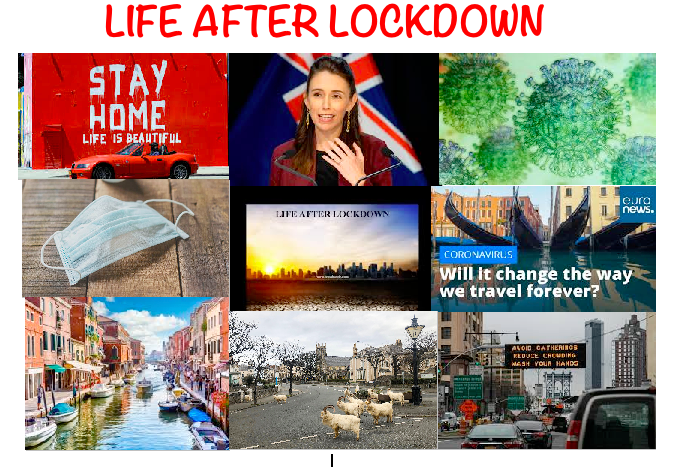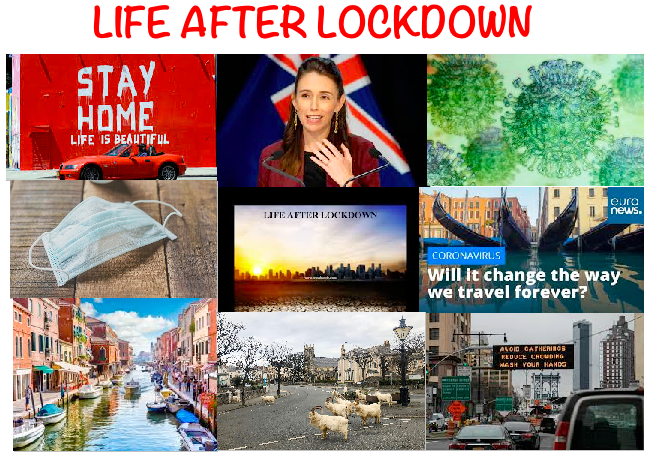9W2 Science
Section outline
-

Big Idea: To investigate the biodiversity of New Zealand by looking at Ecology
Learning Intentions: We are learning to (WALT)...
- Describe the basic structure of the earth
- Investigate natural cycles in the world - like the water cycle and carbon cycle
- Describe the process es involved in the water cycle
- Predict what would happen should man interfere with the water cycle
- Distinguish between vertebrates and invertebrates
- Use simple keys to identify unknown organisms or objects
- Distinguish between ecosystems, communities and populations
- Define the word habitat and describe the habitats of a range of organisms
- Describe how an organism's adaptations help it survive in its habitat
Success Criteria: I can/have...
- Identify the different spheres of the earth
- Describe the water cycle and discuss why it is important
- Predict what would happen should man interfere with the water cycle
- Tabulate the differences between all the classes of Vertebrates and the invertebrates esp arthropods
- Distinguish between ecosystems, communities and populations
- Discuss various habitats for a range of organisms
- Describe how adaptations help an organism survive in its particular habitat.
Activities:
- Google classroom tasks
- Videos on the topic
Homework:
All work NOT completed in class must be completed for HOMEWORK !!
-

Big Idea: To investigate the biodiversity of New Zealand by looking at Ecology
Learning Intentions: We are learning to (WALT)...
- Describe the basic structure of the earth
- Investigate natural cycles in the world - like the water cycle and carbon cycle
- Describe the process es involved in the water cycle
- Predict what would happen should man interfere with the water cycle
- Distinguish between vertebrates and invertebrates
- Use simple keys to identify unknown organisms or objects
- Distinguish between ecosystems, communities and populations
- Define the word habitat and describe the habitats of a range of organisms
- Describe how an organism's adaptations help it survive in its habitat
Success Criteria: I can/have...
- Identify the different spheres of the earth
- Describe the water cycle and discuss why it is important
- Predict what would happen should man interfere with the water cycle
- Tabulate the differences between all the classes of Vertebrates and the invertebrates esp arthropods
- Distinguish between ecosystems, communities and populations
- Discuss various habitats for a range of organisms
- Describe how adaptations help an organism survive in its particular habitat.
Activities:
- Google classroom tasks
- Videos on the topic
Homework:
All work NOT completed in class must be completed for HOMEWORK !!
-

Big Idea: To investigate the biodiversity of New Zealand by looking at Ecology
Learning Intentions: We are learning to (WALT)...
- Describe the basic structure of the earth
- Investigate natural cycles in the world - like the water cycle and carbon cycle
- Describe the process es involved in the water cycle
- Predict what would happen should man interfere with the water cycle
- Distinguish between vertebrates and invertebrates
- Use simple keys to identify unknown organisms or objects
- Distinguish between ecosystems, communities and populations
- Define the word habitat and describe the habitats of a range of organisms
- Describe how an organism's adaptations help it survive in its habitat
Success Criteria: I can/have...
- Identify the different spheres of the earth
- Describe the water cycle and discuss why it is important
- Predict what would happen should man interfere with the water cycle
- Tabulate the differences between all the classes of Vertebrates and the invertebrates esp arthropods
- Distinguish between ecosystems, communities and populations
- Discuss various habitats for a range of organisms
- Describe how adaptations help an organism survive in its particular habitat.
Activities:
- Google classroom tasks
- Videos on the topic
Homework:
All work NOT completed in class must be completed for HOMEWORK !!
-

Big Idea: To investigate the biodiversity of New Zealand by looking at Ecology
Learning Intentions: We are learning to (WALT)...
- Describe the basic structure of the earth
- Investigate natural cycles in the world - like the water cycle and carbon cycle
- Describe the process es involved in the water cycle
- Predict what would happen should man interfere with the water cycle
- Distinguish between vertebrates and invertebrates
- Use simple keys to identify unknown organisms or objects
- Distinguish between ecosystems, communities and populations
- Define the word habitat and describe the habitats of a range of organisms
- Describe how an organism's adaptations help it survive in its habitat
Success Criteria: I can/have...
- Identify the different spheres of the earth
- Describe the water cycle and discuss why it is important
- Predict what would happen should man interfere with the water cycle
- Tabulate the differences between all the classes of Vertebrates and the invertebrates esp arthropods
- Distinguish between ecosystems, communities and populations
- Discuss various habitats for a range of organisms
- Describe how adaptations help an organism survive in its particular habitat.
Activities:
- Google classroom tasks
- Videos on the topic
Homework:
COVID 19 working from home!
Please check your e-mail everyday I will attempt to catch up with you regarding SCIENCE work that you CAN complete at home. Please note all work that has NOT been completed as yet, is to be completed NOW.
I will also be setting a few tasks on Education perfect and in your Google Classroom for you to do so please check these sites daily.
-
I hope you are having a healthy and restful break. Stay safe !!

-

Big Idea: To investigate the biodiversity of New Zealand by looking at Ecology
Learning Intentions: We are learning to (WALT)...
 We are EXPLORING so we can find out about ....
We are EXPLORING so we can find out about .... - Revise the pervious terms work using our new SCIPAD online resource
- Describe the basic structure of the earth
- Investigate natural cycles in the world - like the water cycle and carbon cycle
- Describe the process es involved in the water cycle
- Predict what would happen should man interfere with the water cycle
- Distinguish between vertebrates and invertebrates
- Use simple keys to identify unknown organisms or objects
- Distinguish between ecosystems, communities and populations
- Define the word habitat and describe the habitats of a range of organisms
- Describe how an organism's adaptations help it survive in its habitat
Success Criteria: I can/have...
- Correctly and accurately describe the concepts covered in class last term
- Identify the different spheres of the earth
- Describe the water cycle and discuss why it is important
- Predict what would happen should man interfere with the water cycle
- Tabulate the differences between all the classes of Vertebrates and the invertebrates esp arthropods
- Distinguish between ecosystems, communities and populations
- Discuss various habitats for a range of organisms
- Describe how adaptations help an organism survive in its particular habitat.
Activities:
- Log on to the new SCIPAD online work book and go through the ECOLOGY module, answering questions and completing the various tasks to the best of your ability.
- Google classroom tasks
- Videos on the topic
Homework:
COVID 19 working from home!
Please check your e-mail everyday I will attempt to catch up with you regarding SCIENCE work that you CAN complete at home. Please note all work that has NOT been completed as yet, is to be completed NOW.
I will also be setting a few tasks on Education perfect and in your Google Classroom for you to do so please check these sites daily.
-

Big Idea: Life After Lockdown
Learning Intentions: We are learning to (WALT)...
 We are EXPLORING so that we can learn about ....
We are EXPLORING so that we can learn about ....- Name the main food groups and give examples of each
- Carry out a number of food test investigations
- Describe elements of a balanced diet and explain why they are essential to a healthy life
- Label the major organs in the human digestive system
- Describe the functions of these organs
Success Criteria: I can/have...
- Correctly identify and give examples of the main food groups
- Carry out a number of food tests
- Describe and explain what a balanced diet will look like
- Predict what would happen should one not have a balanced diet
- List and label the various organs that are involved in the digestive process
- Discuss what these organs do in the digestive process
Activities:
- Log on to the new SCIPAD online work book and go through the FOOD & DIGESTION module, answering questions and completing the various tasks to the best of your ability.
- Google classroom tasks
- Videos on the topic
Homework:
COVID 19 working from home!
Please check your e-mail everyday I will attempt to catch up with you regarding SCIENCE work that you CAN complete at home. Please note all work that has NOT been completed as yet, is to be completed NOW.
I will also be setting a few tasks on Education perfect and in your Google Classroom for you to do so please check these sites daily.
-

Big Idea: Life After Lockdown
Learning Intentions: We are learning to (WALT)...
 We are EXPLORING so that we can learn about ....
We are EXPLORING so that we can learn about ....- Name the main food groups and give examples of each
- Carry out a number of food test investigations
- Describe elements of a balanced diet and explain why they are essential to a healthy life
- Label the major organs in the human digestive system
- Describe the functions of these organs
Success Criteria: I can/have...
- Correctly identify and give examples of the main food groups
- Carry out a number of food tests
- Describe and explain what a balanced diet will look like
- Predict what would happen should one not have a balanced diet
- List and label the various organs that are involved in the digestive process
- Discuss what these organs do in the digestive process
Activities:
- Log on to the new SCIPAD online work book and go through the FOOD & DIGESTION module, answering questions and completing the various tasks to the best of your ability.
- Google classroom tasks
- Videos on the topic
Homework:
COVID 19 working from home!
Please check your e-mail everyday I will attempt to catch up with you regarding SCIENCE work that you CAN complete at home. Please note all work that has NOT been completed as yet, is to be completed NOW.
I will also be setting a few tasks on Education perfect and in your Google Classroom for you to do so please check these sites daily.
-

Big Idea: Life After Lockdown
Learning Intentions: We are learning to (WALT)...
 We are EXPLORING so that we can learn about ....
We are EXPLORING so that we can learn about ....- Name the main food groups and give examples of each
- Carry out a number of food test investigations
- Describe elements of a balanced diet and explain why they are essential to a healthy life
- Label the major organs in the human digestive system
- Describe the functions of these organs
Success Criteria: I can/have...
- Correctly identify and give examples of the main food groups
- Carry out a number of food tests
- Describe and explain what a balanced diet will look like
- Predict what would happen should one not have a balanced diet
- List and label the various organs that are involved in the digestive process
- Discuss what these organs do in the digestive process
Activities:
- Log on to the new SCIPAD online work book and go through the FOOD & DIGESTION module, answering questions and completing the various tasks to the best of your ability.
- Google classroom tasks
- Videos on the topic
Homework:
COVID 19 working from home!
Please check your e-mail everyday I will attempt to catch up with you regarding SCIENCE work that you CAN complete at home. Please note all work that has NOT been completed as yet, is to be completed NOW.
I will also be setting a few tasks on Education perfect and in your Google Classroom for you to do so please check these sites daily.
-

Big Idea: Life After Lockdown
Learning Intentions: We are learning to (WALT)...
 We are EXPLORING so that we can learn about ....
We are EXPLORING so that we can learn about ....- Name the main food groups and give examples of each
- Carry out a number of food test investigations
- Describe elements of a balanced diet and explain why they are essential to a healthy life
- Label the major organs in the human digestive system
- Describe the functions of these organs
Success Criteria: I can/have...
- Correctly identify and give examples of the main food groups
- Carry out a number of food tests
- Describe and explain what a balanced diet will look like
- Predict what would happen should one not have a balanced diet
- List and label the various organs that are involved in the digestive process
- Discuss what these organs do in the digestive process
Activities:
- Log on to the new SCIPAD online work book and go through the FOOD & DIGESTION module, answering questions and completing the various tasks to the best of your ability.
- Google classroom tasks
- Videos on the topic
Homework:
COVID 19 working from home!
Please check your e-mail everyday I will attempt to catch up with you regarding SCIENCE work that you CAN complete at home. Please note all work that has NOT been completed as yet, is to be completed NOW.
I will also be setting a few tasks on Education perfect and in your Google Classroom for you to do so please check these sites daily.
-

Big Idea: Life After Lockdown
Learning Intentions: We are learning to (WALT)...
 We are EXPLORING to learn about
We are EXPLORING to learn about- Name the main food groups and give examples of each
- Carry out a number of food test investigations
- Describe elements of a balanced diet and explain why they are essential to a healthy life
- Label the major organs in the human digestive system
- Describe the functions of these organs
Success Criteria: I can/have...
- Correctly identify and give examples of the main food groups
- Carry out a number of food tests
- Describe and explain what a balanced diet will look like
- Predict what would happen should one not have a balanced diet
- List and label the various organs that are involved in the digestive process
- Discuss what these organs do in the digestive process
Activities:
- Log on to the new SCIPAD online work book and go through the FOOD & DIGESTION module, answering questions and completing the various tasks to the best of your ability.
- Google classroom tasks
- Videos on the topic
Homework:
We are giving you this week to catch up on all incomplete work. Please keep checking your e-mails and your google classroom page to see for any updates.
As Always work NOT completed in class will be completed for homework !
-

EXPLORE / TŪHURA learning intentions:
- We are EXPLORING...by researching the main food groups and what they are used for in the body
- We are EXPLORING...experimenting to find out which food contains which nutrient
- We are EXPLORING...data on food labels to analyse and decide which food item contains the most nutritios meal.
- We are EXPLORING by researching and recognising different types of diets
Learning Intentions: We are learning to (WALT)...
- Name the main food groups and give examples of each
- Carry out a number of food test investigations
- Describe elements of a balanced diet and explain why they are essential to a healthy life
- Label the major organs in the human digestive system
- Describe the functions of these organs
Success Criteria: I can/have...
- Correctly identify and give examples of the main food groups
- Carry out a number of food tests
- Describe and explain what a balanced diet will look like
- Predict what would happen should one not have a balanced diet
- List and label the various organs that are involved in the digestive process
- Discuss what these organs do in the digestive process
Activities:
- Log on to the new SCIPAD online work book and go through the FOOD & DIGESTION module, answering questions and completing the various tasks to the best of your ability.
- Google classroom tasks
- Videos on the topic
Homework:
We are giving you this week to catch up on all incomplete work. Please keep checking your e-mails and your google classroom page to see for any updates.
As Always work NOT completed in class will be completed for homework !
-

EXPLORE / TŪHURA learning intentions:
- We are EXPLORING...by researching the main food groups and what they are used for in the body
- We are EXPLORING...experimenting to find out which food contains which nutrient
- We are EXPLORING...data on food labels to analyse and decide which food item contains the most nutritious meal.
- We are EXPLORING by researching and recognising different types of diets
Learning Intentions: We are learning to (WALT)...
- Name the main food groups and give examples of each
- Carry out a number of food test investigations
- Describe elements of a balanced diet and explain why they are essential to a healthy life
- Label the major organs in the human digestive system
- Describe the functions of these organs
Success Criteria: I can/have...
- Correctly identify and give examples of the main food groups
- Carry out a number of food tests
- Describe and explain what a balanced diet will look like
- Predict what would happen should one not have a balanced diet
- List and label the various organs that are involved in the digestive process
- Discuss what these organs do in the digestive process
Activities:
- Log on to the new SCIPAD online work book and go through the FOOD & DIGESTION module, answering questions and completing the various tasks to the best of your ability.
- Google classroom tasks
- Videos on the topic
Homework:
We are giving you this week to catch up on all incomplete work. Please keep checking your e-mails and your google classroom page to see for any updates.
As Always work NOT completed in class will be completed for homework !
-

PLAN & DO / WHAKAMAHI learning intentions:
- We are PLANNING... to investigate the different types of nutrients in food so that we can present an outline of a healthy balanced diet.
- We are planning to burn different food stuffs so that we can calculate the amount of energy stored in each particular food type
Learning Intentions: We are learning to (WALT)...
- Name the main food groups and give examples of each
- Carry out a number of food test investigations
- Describe elements of a balanced diet and explain why they are essential to a healthy life
- Label the major organs in the human digestive system
- Describe the functions of these organs
Success Criteria: I can/have...
- Correctly identify and give examples of the main food groups
- Carry out a number of food tests
- Describe and explain what a balanced diet will look like
- Predict what would happen should one not have a balanced diet
- List and label the various organs that are involved in the digestive process
- Discuss what these organs do in the digestive process
Activities:
- Log on to the new SCIPAD online work book and go through the FOOD & DIGESTION module, answering questions and completing the various tasks to the best of your ability.
- Google classroom tasks
- Videos on the topic
Homework:
We are giving you this week to catch up on all incomplete work. Please keep checking your e-mails and your google classroom page to see for any updates.
As Always work NOT completed in class will be completed for homework !
-
You will be performing a practical investigation to determine how much energy there is in different food types
-

PLAN & DO / WHAKAMAHI learning intentions:
- We are PLANNING... to investigate the different types of nutrients in food so that we can present an outline of a healthy balanced diet.
- We are planning to burn different food stuffs so that we can calculate the amount of energy stored in each particular food type
Learning Intentions: We are learning to (WALT)...
- Name the main food groups and give examples of each
- Carry out a number of food test investigations
- Describe elements of a balanced diet and explain why they are essential to a healthy life
- Label the major organs in the human digestive system
- Describe the functions of these organs
Success Criteria: I can/have...
- Correctly identify and give examples of the main food groups
- Carry out a number of food tests
- Describe and explain what a balanced diet will look like
- Predict what would happen should one not have a balanced diet
- List and label the various organs that are involved in the digestive process
- Discuss what these organs do in the digestive process
Activities:
- Log on to the new SCIPAD online work book and go through the FOOD & DIGESTION module, answering questions and completing the various tasks to the best of your ability.
- Google classroom tasks
- Videos on the topic
Homework:
We are giving you this week to catch up on all incomplete work. Please keep checking your e-mails and your google classroom page to see for any updates.
As Always work NOT completed in class will be completed for homework !
-
EXPLORE / TŪHURA learning intentions:
- We are EXPLORING...by researching the main food groups and what they are used for in the body
- We are EXPLORING...experimenting to find out which food contains which nutrient
- We are EXPLORING...data on food labels to analyse and decide which food item contains the most nutritios meal.
- We are EXPLORING by researching and recognising different types of diets
- We are EXPLORING ow food is digested (broken up ) and how this digested food is absorbed by the body
-
EXPLORE / TŪHURA learning intentions:
- We are EXPLORING...by researching the main food groups and what they are used for in the body
- We are EXPLORING...experimenting to find out which food contains which nutrient
- We are EXPLORING...data on food labels to analyse and decide which food item contains the most nutritios meal.
- We are EXPLORING by researching and recognising different types of diets
- We are EXPLORING ow food is digested (broken up ) and how this digested food is absorbed by the body
-
Have a Fantastic Holiday Everyone!!
-
EXPLORE / TŪHURA learning intentions:
- We are EXPLORING...by researching the main food groups and what they are used for in the body
- We are EXPLORING...experimenting to find out which food contains which nutrient
- We are EXPLORING...data on food labels to analyse and decide which food item contains the most nutritios meal.
- We are EXPLORING by researching and recognising different types of diets
- We are EXPLORING how food is digested (broken up ) and how this digested food is absorbed by the body
- We are EXPLORING Back to Basic skills that have been rediscovered during Lockdown - the skills of growing your own vegetables, first aid, making bread and ginger beer.
- We are EXPLORING Plants and Photosynthesis
- We are EXPLORING the use of Yeast in making Bread
- We are EXPLORING human biology
-
PLAN & DO / WHAKAMAHI learning intentions:
- We are PLANNING... to investigate the different types of nutrients in food so that we can present an outline of a healthy balanced diet.
- We are PLANNING to burn different food stuffs so that we can calculate the amount of energy stored in each particular food type
- W are PLANNING number of Back to Basic challenges, which will involve skills that were rediscovered over lockdown
-
EXPLORE / TŪHURA learning intentions:
- We are EXPLORING...by researching the main food groups and what they are used for in the body
- We are EXPLORING...experimenting to find out which food contains which nutrient
- We are EXPLORING...data on food labels to analyse and decide which food item contains the most nutritios meal.
- We are EXPLORING by researching and recognising different types of diets
- We are EXPLORING how food is digested (broken up ) and how this digested food is absorbed by the body
- We are EXPLORING Back to Basic skills that have been rediscovered during Lockdown - the skills of growing your own vegetables, first aid, making bread and ginger beer.
- We are EXPLORING Plants and Photosynthesis
- We are EXPLORING the use of Yeast in making Bread
- We are EXPLORING human biology
-
Lockdown Activities - See the LA google classroom
-
Lockdown Activities - See the LA google classroom
-
Lockdown Activities - See the LA google classroom
-
EXPLORE / TŪHURA learning intentions:
- We are EXPLORING..the nature of Forces by Experimentation.
- We are EXPLORING...The Effect of Forces on a moving object
- We are EXPLORING...The relationship between mass and weight
- We are EXPLORING ... how to calculate speed, time and distance
- We are EXPLORING Simple machines
-
EXPLORE / TŪHURA learning intentions:
- We are EXPLORING..the nature of Forces by Experimentation.
- We are EXPLORING...The Effect of Forces on a moving object
- We are EXPLORING...The relationship between mass and weight
- We are EXPLORING ... how to calculate speed, time and distance
- We are EXPLORING Simple machines
-
EXPLORE / TŪHURA learning intentions:
- We are EXPLORING..the nature of Forces by Experimentation.
- We are EXPLORING...The Effect of Forces on a moving object
- We are EXPLORING...The relationship between mass and weight
- We are EXPLORING ... how to calculate speed, time and distance
- We are EXPLORING Simple machines
-
EXPLORE / TŪHURA learning intentions:
- We are EXPLORING..the nature of Forces by Experimentation.
- We are EXPLORING...The Effect of Forces on a moving object
- We are EXPLORING...The relationship between mass and weight
- We are EXPLORING ... how to calculate speed, time and distance
- We are EXPLORING Simple machines
-

Happy Holiday Everyone - See you in the New Term.....
-
EXPLORE / TŪHURA learning intentions:
- We are EXPLORING...the nature of Forces by experimentation
- We are EXPLORING...the effect of forces on a moving object
- We are EXPLORING...the relationship between mass and weight
- We are EXPLORING how to calculate speed, time and distance
- We are EXPLORING simple machines
- We are EXPLORING Different methods to power our bottle car
- We are EXPLORING electricity as a power source for our bottle car
- We are EXPLORING alternative energy sources
-
EXPLORE / TŪHURA learning intentions:
- We are EXPLORING...the nature of Forces by experimentation
- We are EXPLORING...the effect of forces on a moving object
- We are EXPLORING...the relationship between mass and weight
- We are EXPLORING how to calculate speed, time and distance
- We are EXPLORING simple machines
- We are EXPLORING Different methods to power our bottle car
- We are EXPLORING electricity as a power source for our bottle car
- We are EXPLORING alternative energy sources
-
PLAN & DO / WHAKAMAHI learning intentions:
- We are PLANNING... to make a box trolly car (Y10), a bottle model car (Y9 ), model car with different wheels (Y8) so that we can... apply our knowledge and present data on why speed limits can save lives
- We are completing a set of CHALLENGES - which will test our experimental procedure skills and our Data collecting skills.
- Challenges include - parachute drop, Sphero programming, helicopter drop, car down a ramp and Water Wild Wacky races on 18 November
-

Big Idea: "Amazing Races"
Learning Intentions: We are learning to (WALT)...
- Understand the key differences between mass and weight.
- Describe and calculate speed, time distance
- Predict what factors would influence speed of an object
- Describe the forces acting on an object
- Describe the importance of friction
Success Criteria : I can/have...
- Investigated the relationship between slope of a road and distance a car travelled
- Investigated upward motion of a rocket
- Investigated and collected data from our box go cart
- Investigated and collected data during our Wild Wet Wednesday
Activities:
- Google classroom tasks
- Videos on the topic
- Car down slope practical
- Box go cart races (investigate relationship between mass, slope, speed distance
Homework:
All Class work NOT completed in class will be completed for Homework !!
-

Big Idea: "Amazing Races"
Learning Intentions: We are learning to (WALT)...
- Understand the key differences between mass and weight.
- Describe and calculate speed, time distance
- Predict what factors would influence speed of an object
- Describe the forces acting on an object
- Describe the importance of friction
Success Criteria : I can/have...
- Investigated the relationship between slope of a road and distance a car travelled
- Investigated upward motion of a rocket
- Investigated and collected data from our box go cart
- Investigated and collected data during our Wild Wet Wednesday
Activities:
- Google classroom tasks
- Videos on the topic
- Car down slope practical
- Box go cart races (investigate relationship between mass, slope, speed distance
Homework:
All Class work NOT completed in class will be completed for Homework !!
-

Big Idea: "Amazing Races"
Learning Intentions: We are learning to (WALT)...
- Understand the key differences between mass and weight.
- Describe and calculate speed, time distance
- Predict what factors would influence speed of an object
- Describe the forces acting on an object
- Describe the importance of friction
Success Criteria : I can/have...
- Investigated the relationship between slope of a road and distance a car travelled
- Investigated upward motion of a rocket
- Investigated and collected data from our box go cart
- Investigated and collected data during our Wild Wet Wednesday
Activities:
- Google classroom tasks
- Videos on the topic
- Car down slope practical
- Box go cart races (investigate relationship between mass, slope, speed distance
Homework:
All Class work NOT completed in class will be completed for Homework !!

